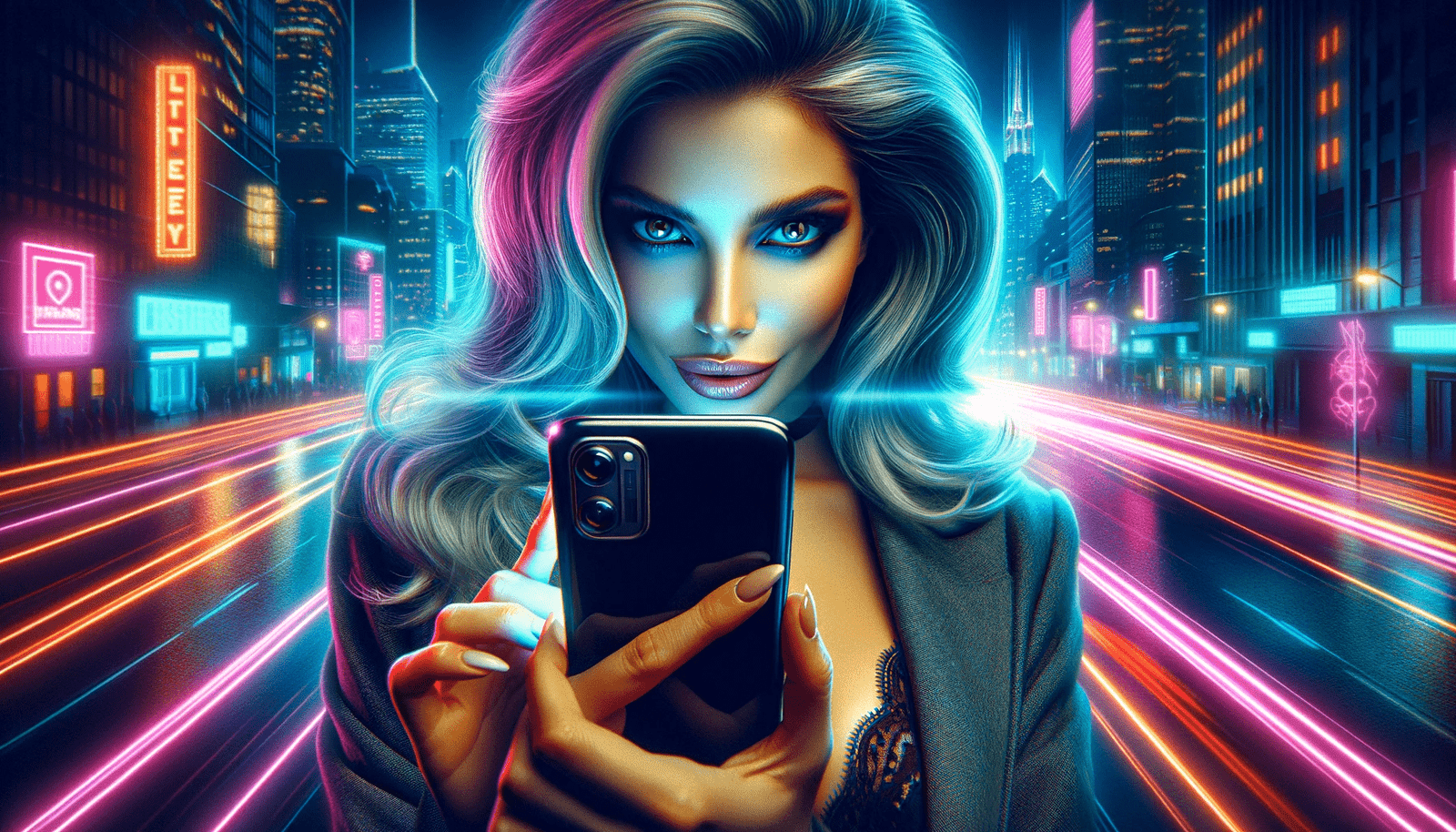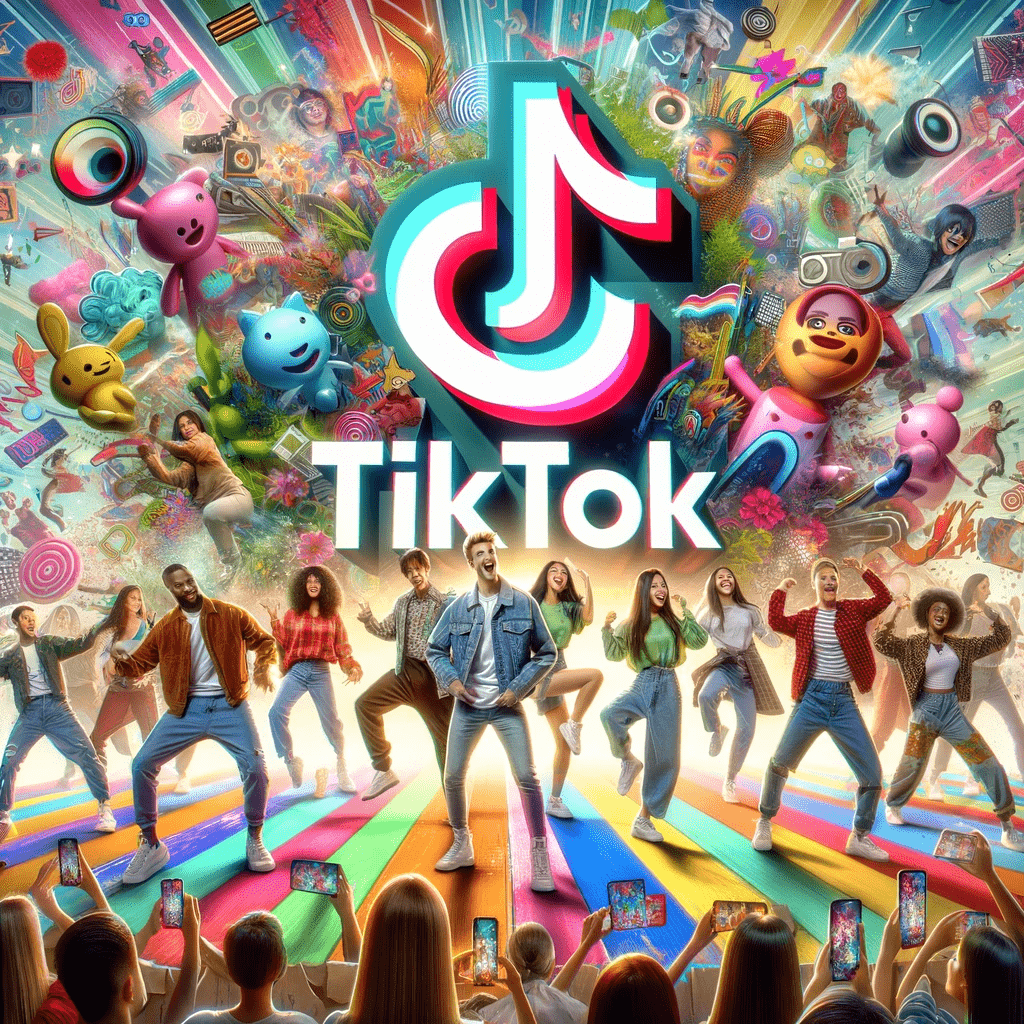Influencers Gone Wild: Navigating The Digital Wild West
Table of Contents
- Defining the "Influencer Gone Wild" Phenomenon
- The Rise of Digital Stardom and Its Pressures
- The Psychology Behind the Wild Behavior
- Societal and Cultural Impact of Influencers Gone Wild
- The Business of Controversy: Monetizing the Mayhem
- Case Studies of Reckless and Unethical Actions
- Brand Fallout and The Cost of Viral Fame
- Navigating the Digital Landscape for Consumers and Creators
- Conclusion: The Unfolding Saga of Digital Influence
Defining the "Influencer Gone Wild" Phenomenon
The term "influencer gone wild" refers to instances where social media influencers engage in reckless, unethical, or controversial behavior that draws public scrutiny. It's a descriptor for those who engage in bold, controversial, or risky behavior to gain attention and increase their popularity. This can include outrageous stunts, inappropriate comments, or even manipulative tactics. At its core, it highlights a dark side of influencer culture, where shock value and sensationalism are sometimes prized over truth and integrity. This phenomenon, widely discussed under the banner of “influencers gone wild”, exposes the risks of an influencer culture that prizes shock value and sensationalism over truth. An influencer, at their core, is someone who has the power to affect the purchasing decisions of others because of their authority, knowledge, position, or relationship with their audience. They build a grassroots online presence through engaging content, interacting with their followers, and building trust. Influencers are often seen as individuals who inspire or guide the actions of others, generating interest in various products, services, or even lifestyles. While follower count matters, real influence stems from genuine engagement and the ability to connect with an audience. Influencer marketing has become an increasingly important part of a marketing organization's social media strategy, referring to the practice of collaborating with relevant social media personalities for sponsorships, product promotions, and partnerships. However, when an influencer goes wild, this carefully constructed trust can crumble, leading to significant repercussions not just for the individual but for the brands they represent and the broader digital ecosystem.The Rise of Digital Stardom and Its Pressures
Influencers have become the new celebrities, armed with iPhones, ring lights, and millions of followers. They shape trends, start conversations, and drive commerce. The path to becoming an influencer often involves a relentless pursuit of audience growth, engagement, and monetization. Discovering the essential steps to grow your audience, engage followers, and monetize your online presence is a well-trodden path for many aspiring digital stars. Platforms like Instagram and TikTok host millions of creators, all vying for attention in a crowded digital space. Ainfluencer, for example, is a free influencer marketing platform that connects brands and influencers across Instagram and TikTok, boasting over 500,000 influencers. This sheer volume creates immense pressure to stand out. The allure of viral fame and substantial revenue can be intoxicating. Many influencers earn revenue through various streams: brand deals, affiliate marketing, merchandise sales, and direct audience support. The more attention they garner, the more opportunities arise. This environment, however, can foster a dangerous mindset where the pursuit of virality overshadows ethical considerations. The constant need for fresh, engaging content can push creators to extremes. What leads to the ‘influencer gone wild’ behavior? Often, it's a combination of factors: the intoxicating rush of fame, the financial incentives tied to engagement, and the blurred lines between personal and public life. The digital stage offers immediate feedback in the form of likes, shares, and comments, creating a feedback loop that can either reinforce positive behavior or inadvertently encourage increasingly risky actions.The Psychology Behind the Wild Behavior
Understanding why an influencer goes wild requires delving into the psychological underpinnings of digital fame. The learn about the influencers gone wild trend, its psychological causes, societal effects, and the role of social media platforms. One primary driver is the pursuit of attention and validation. In a world where digital metrics define success, the urge to "go viral" can become an obsession. This can lead to a desensitization to risk, where the potential for a massive surge in followers or a lucrative brand deal outweighs the risks of public backlash or ethical compromise. The instant gratification offered by social media, coupled with the dopamine rush from likes and shares, can create a powerful addiction, driving individuals to increasingly extreme lengths. Another factor is the parasocial relationship influencers build with their audience. Followers often feel a deep, personal connection to influencers, seeing them as friends or trusted advisors. This perceived intimacy can create a false sense of security for the influencer, leading them to believe their audience will forgive any transgression. However, this bond is fragile; once trust is broken by reckless or unethical behavior, the fallout can be severe. Furthermore, the isolation of content creation, often done alone in front of a camera, can distort an influencer's perception of reality and consequences. They might exist in an echo chamber of adoring fans, making them less attuned to the potential negative reactions from a wider, more critical audience. The pressure to maintain a curated online persona can also lead to burnout and mental health issues, sometimes manifesting as erratic or controversial behavior as a cry for help or a release from the constant performance.Societal and Cultural Impact of Influencers Gone Wild
The influencers gone wild behavior not only sets new trends and reshapes social norms but also influences lifestyle, morals, relationships, and fashion standards. This phenomenon has a ripple effect across society, especially among younger, impressionable audiences who look up to these digital stars. When influencers engage in controversial actions, they inadvertently normalize certain behaviors, blurring the lines between acceptable and unacceptable conduct.Reshaping Social Norms and Morals
When an influencer gains millions of views for a dangerous stunt or a morally questionable statement, it sends a message that such actions are rewarded with attention and, by extension, success. This can lead to a lowering of societal standards, where shock value becomes more important than integrity or empathy. Young followers, in particular, may struggle to differentiate between authentic behavior and performative acts designed solely for virality. This can impact their understanding of appropriate social interactions, ethical decision-making, and even their personal values. The constant exposure to sensationalized content can desensitize individuals to serious issues, making them less likely to critically evaluate information or challenge problematic narratives.Influencing Lifestyle and Fashion Standards
Beyond morals, influencers dictate trends in lifestyle, fashion, and consumer choices. When an influencer goes wild, their erratic behavior can still influence how their followers perceive and adopt certain trends. For example, if an influencer known for reckless spending habits continues to be celebrated, it might inadvertently promote financial irresponsibility among their audience. Similarly, controversial fashion choices or lifestyle trends promoted by "wild" influencers can become mainstream, regardless of their practicality or ethical implications. This highlights the immense power influencers wield and the responsibility that comes with it, especially given that their ownership details are not clearly defined, yet their impact is undeniable. The dark side of influencer culture, where reckless stunts, fake promotions, and manipulative tactics dominate the industry, is exposed through this trend.The Business of Controversy: Monetizing the Mayhem
For some influencers, controversy is not an accident but a calculated business strategy. The phrase "influencer gone wild" often describes those who intentionally court controversy to boost their visibility and, consequently, their earning potential. In the attention economy, negative attention can still be lucrative. A viral scandal, even a damaging one, can lead to a surge in search interest, media coverage, and new followers, which can then be monetized through increased ad revenue, new brand deals (from less scrupulous brands), or even by launching their own products. This strategic use of controversy is a high-risk, high-reward game. While it can lead to short-term gains, it often comes at the cost of long-term credibility and trust. Brands, particularly those with established reputations, are increasingly wary of associating with influencers who have a history of problematic behavior. However, for certain niche markets or for influencers who target a younger, less discerning audience, the shock value can translate directly into revenue. This business model thrives on the constant need for engagement, pushing creators to escalate their actions to maintain relevance. The pressure to constantly outdo previous content can lead to a cycle of increasingly outrageous behavior, making it harder to pull back once the "wild" reputation is established.Case Studies of Reckless and Unethical Actions
While we won't name specific individuals to maintain focus on the phenomenon and uphold E-E-A-T principles, the digital landscape is replete with examples of influencers who have gone to extreme lengths to capture attention. These instances serve as stark warnings about the pitfalls of unchecked digital ambition.The Reckless Prankster
One common archetype of the "influencer gone wild" is the prankster whose stunts cross the line from humorous to dangerous or illegal. These individuals often start with harmless pranks but escalate to public disturbances, property damage, or even putting others at risk, all for the sake of a viral video. The motivation is clear: shocking content generates views, and views generate revenue. However, the consequences can range from public condemnation and loss of sponsorships to legal charges. These actions highlight a fundamental disregard for public safety and societal norms, prioritizing entertainment over responsibility. The pursuit of extreme content often leads to a disconnect from real-world consequences, as the influencer becomes solely focused on the digital outcome.The Misleading Marketer
Another pervasive issue involves influencers engaging in unethical business practices, particularly in product promotion. This includes promoting products they haven't used, making false claims about efficacy, or failing to disclose paid partnerships transparently. In the YMYL (Your Money or Your Life) context, this becomes particularly dangerous when influencers promote unproven health supplements, risky financial schemes, or misleading investment opportunities. The "influencer gone wild" trend exposes the dark side of influencer culture, where fake promotions and manipulative tactics dominate the industry. For instance, an influencer might promote a "get rich quick" scheme without understanding its inherent risks, potentially leading their followers to financial ruin. Such actions erode trust, not just in the individual influencer but in the entire influencer marketing industry, making it harder for legitimate creators and brands to connect with audiences. The lack of clear ownership details for some of these schemes further complicates accountability.Brand Fallout and The Cost of Viral Fame
“Influencers gone wild” shows the cost of viral fame. When an influencer engages in controversial or unethical behavior, the repercussions extend far beyond their personal brand. Brands that have partnered with them often face immediate backlash, forcing them to sever ties to protect their own reputation. This "brand fallout" can be swift and severe, leading to terminated contracts, public apologies, and significant financial losses for both parties. For the influencer, it means a loss of income, credibility, and future opportunities. Read true cases, brand fallout, and the impact on mental health. The public scrutiny that accompanies an influencer going wild can be immense, leading to widespread criticism, "cancel culture" phenomena, and a permanent stain on their digital record. This constant negative attention can take a significant toll on an influencer's mental health, leading to anxiety, depression, and a sense of isolation. The very fame they sought becomes a cage, with every past mistake amplified and re-examined. The pressure to maintain an image, coupled with the fear of public judgment, can be overwhelming, demonstrating that viral fame, while lucrative, often comes at a steep psychological price. The long-term consequences often outweigh any short-term gains from controversial actions.Navigating the Digital Landscape for Consumers and Creators
The "influencer gone wild" phenomenon highlights the urgent need for greater accountability and critical thinking within the digital space. For both consumers and aspiring creators, understanding the dynamics at play is crucial.The Role of Social Media Platforms
Social media platforms bear a significant responsibility in mitigating the "influencer gone wild" trend. While they benefit from the engagement generated by controversial content, they also have a duty to ensure user safety and uphold community guidelines. This involves more robust content moderation, stricter enforcement of rules against dangerous or misleading content, and greater transparency regarding sponsored posts. Platforms need to invest in AI and human moderation to quickly identify and address problematic behavior, rather than waiting for public outcry. They also have a role in educating creators about ethical content creation and the potential consequences of their actions, fostering a culture of responsibility rather than just virality.Advice for the Conscious Consumer
For consumers, especially those whose money or life decisions might be influenced, vigilance and critical thinking are paramount. Here are key takeaways: * **Question Everything:** Don't take an influencer's word as gospel. Always cross-reference information, especially regarding health, finance, or major life decisions. * **Look for Transparency:** Be wary of influencers who don't clearly disclose sponsored content or who promote products without genuine reviews. * **Evaluate Credibility:** Does the influencer have actual expertise in the area they're discussing? Do they back up claims with verifiable data or sources? Remember, the meaning of influencer is one who exerts influence, but that doesn't always equate to expertise. * **Recognize Manipulation:** Understand that some content is designed purely for shock value or to elicit an emotional response, rather than to inform or entertain genuinely. * **Prioritize Mental Well-being:** If an influencer's content consistently makes you feel negative or promotes unhealthy behaviors, it's okay to unfollow or mute them.Conclusion: The Unfolding Saga of Digital Influence
The "influencer gone wild" phenomenon is more than just sensational headlines; it's a profound reflection of our evolving digital culture. It underscores the immense power of digital influence, the pressures that come with it, and the significant impact it has on our societal norms, consumer choices, and even our mental health. This article has explored the psychological drivers behind such behavior, the business models that sometimes incentivize it, and the far-reaching consequences for individuals, brands, and the broader public. The trend exposes the risks of an influencer culture that prizes shock value and sensationalism over truth and ethical conduct. As the digital landscape continues to evolve, it becomes increasingly crucial for platforms, creators, and consumers alike to prioritize responsibility, authenticity, and critical thinking. By understanding the complexities of the "influencer gone wild" phenomenon, we can collectively work towards a more trustworthy and beneficial digital environment. What are your thoughts on the "influencer gone wild" trend? Have you encountered instances that particularly concerned you? Share your insights in the comments below, and don't forget to share this article with others who might benefit from these insights. For more discussions on navigating the complexities of the digital world, explore other articles on our site.
When Influencers Go Wild: The Unraveling Of The Social Media Stars

Influencer Gone Wild: The Untamed Side of Social Media Stardom

Influencer Gone Wild: The Untamed Side of Social Media Stardom